physics
breakout for physics only stories (formerly tied to engineering)
-
Cornell receives grant to support STEM education for students with financial need
The National Science Foundation (NSF) just announced that it has awarded Cornell College a grant for almost $650,000 to support students with financial need who are entering a STEM (Science, Technology, Engineering and Math) field of study. The grant establishes the Cornell College “Mentoring Students to Success in STEM Fields” program, which will provide students […]
-
Fink and Professor Lichty work to create linear phased arrays from cell phones
Simon Fink ’17 works with Professor Lyle Lichty on a CSRI project to create linear phased arrays from cell phones.
-
CSRI duo set sights on space discoveries
Professor Kara Beauchamp and Cole Horan ’18 have their minds set on exploring a place that’s 5,000 light-years from earth–the Rosette Nebula. “The Rosette Nebula is a star-forming region,” said Professor Beauchamp. “New stars are always being born in our galaxy, and they are usually born in these compact regions that have a lot of gas […]
-
Elayavalli researches at Large Hadron Collider
Raghav Kunnawalkam Elayavalli ’11 spent the summer of 2014 doing research at the Large Hadron Collider.
-
Kamenetzky earns prestigious fellowship
Julia Kamenetzky ’08 was awarded a National Science Foundation Astronomy and Astrophysics Postdoctoral Fellowship to carry out research and education.
-
Physics majors dive into senior projects
For eighteen days five physics majors immersed themselves in senior research projects ranging from next-generation batteries to quantum teleportation during their advanced physics lab course.
-
McKenna pursues doctorate in data visualization
Summer research at the Space Telescope Science Institute helped Sean McKenna land a graduate position at the University of Utah’s Scientific Computing and Imaging Institute.
-
Lichty lectures on the search for extrasolar planets
Lyle Lichty, professor of physics, will give a lecture on Nov 17th titled “Progress and Surprises in the Search for Other Earths.” Nearly 700 extrasolar planets have been discovered since 1995, yet the number of confirmed Earth-like planets remains at one; only Earth can sustain life as we know it.
-
Taming the Energy of Stars
John Sarff ’82, professor of physics at University of Wisconsin, will present a lecture on fusion energy on April 12th.
-
Nuclear Energy After Japan: Worth the Risks?
In light of the recent Fukushima reactor disaster, many questions have been raised about the advantages and disadvantages of nuclear energy.
-
SIG lecture
Dr. Harlan Graber, emeritus professor of physics, will present a lecture on Oct 12th entitled, “The Physics of Baseball.”
-
Physics opportunities pave way for Collins’ dream job in nuclear power
Sarah Collins ’07 became interested in nuclear energy in the 8th grade, and was thrilled to land a position at a nuclear power plant immediately after college. She is currently a Non-licensed Nuclear Reactor Operator at the Oconee Nuclear Station in Seneca, South Carolina.
-
Jorgensen plans to combine passions for physics and business
Summer physics research on solar cells and wind energy at Cornell sparked Lucas Jorgensen’s interest in renewable energy. After graduating from Cornell in 2008, he plans to pursue the business side of the industry, incorporating skills learned from his second major — economics and business.
-
Small physics program leads to big awards for Kamenetzky
After winning two of the nation’s most prestigious undergraduate science awards, Julia Kamentzky says Cornell’s small size was actually a big plus. “Because we are a smaller department, it’s easy to get to know all the other physics majors and professors, so you can get individual help to understand the material,” she says.
-
Cornell student awarded prestigious Goldwater Scholarship
MOUNT VERNON — Julia Kamenetzky, a Cornell College junior from Bettendorf who intends to pursue a doctorate in astrophysics, has received a Barry M. Goldwater Scholarship, the premier undergraduate award for students interested in the fields of science, mathematics and engineering.

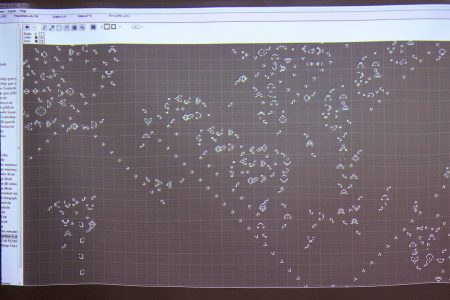 Cornell receives grant to support STEM education for students with financial need
Cornell receives grant to support STEM education for students with financial need 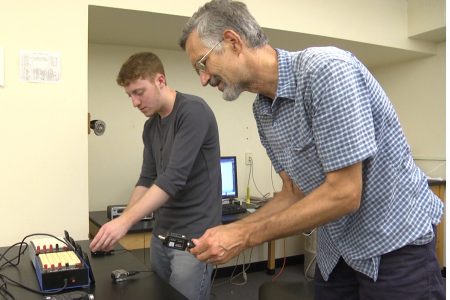 Fink and Professor Lichty work to create linear phased arrays from cell phones
Fink and Professor Lichty work to create linear phased arrays from cell phones 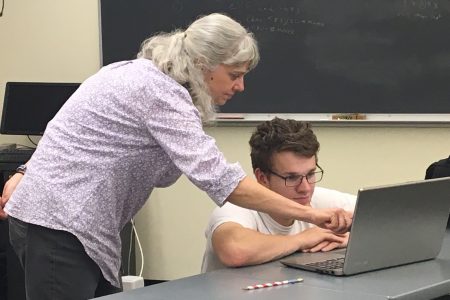 CSRI duo set sights on space discoveries
CSRI duo set sights on space discoveries  Elayavalli researches at Large Hadron Collider
Elayavalli researches at Large Hadron Collider 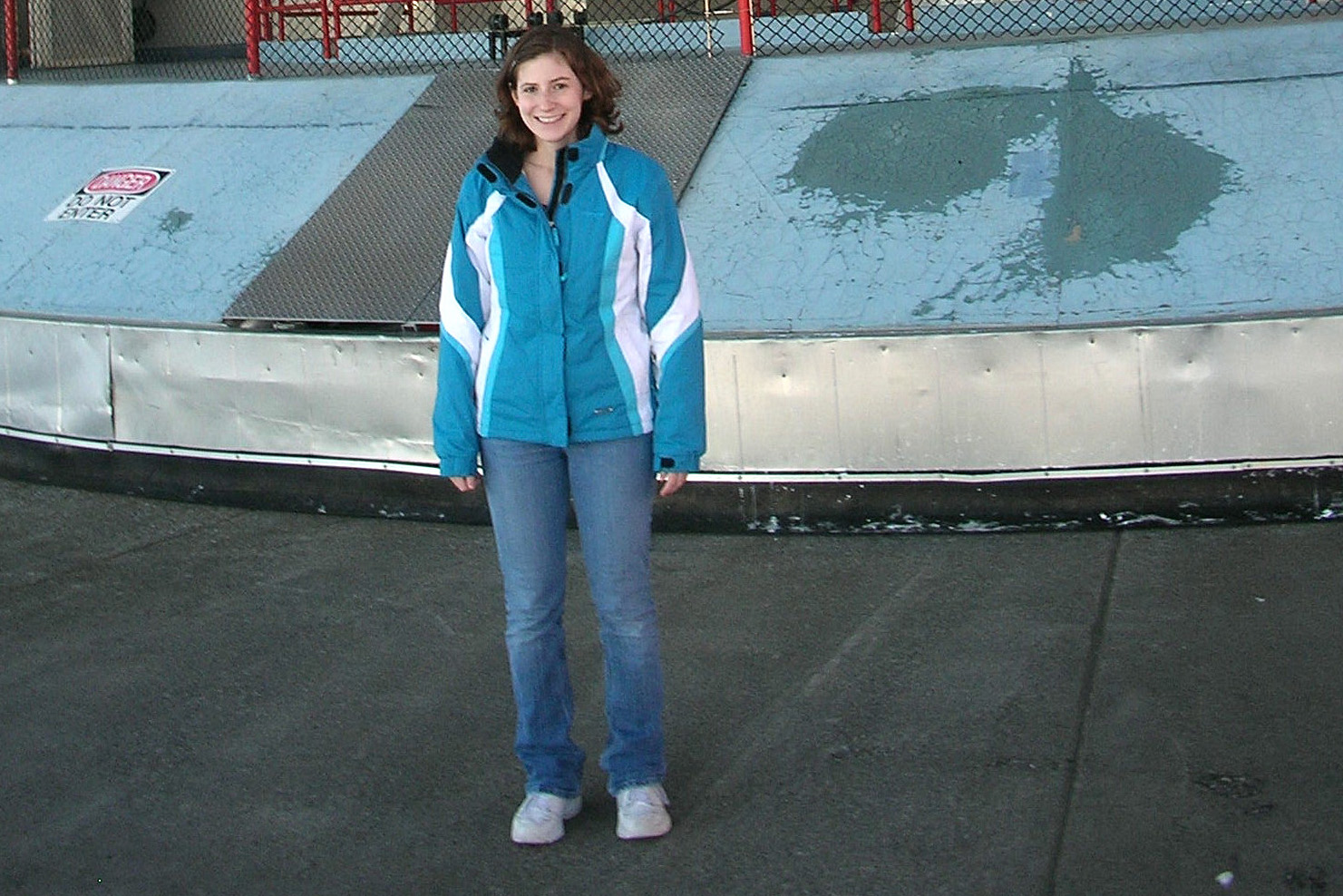 Kamenetzky earns prestigious fellowship
Kamenetzky earns prestigious fellowship 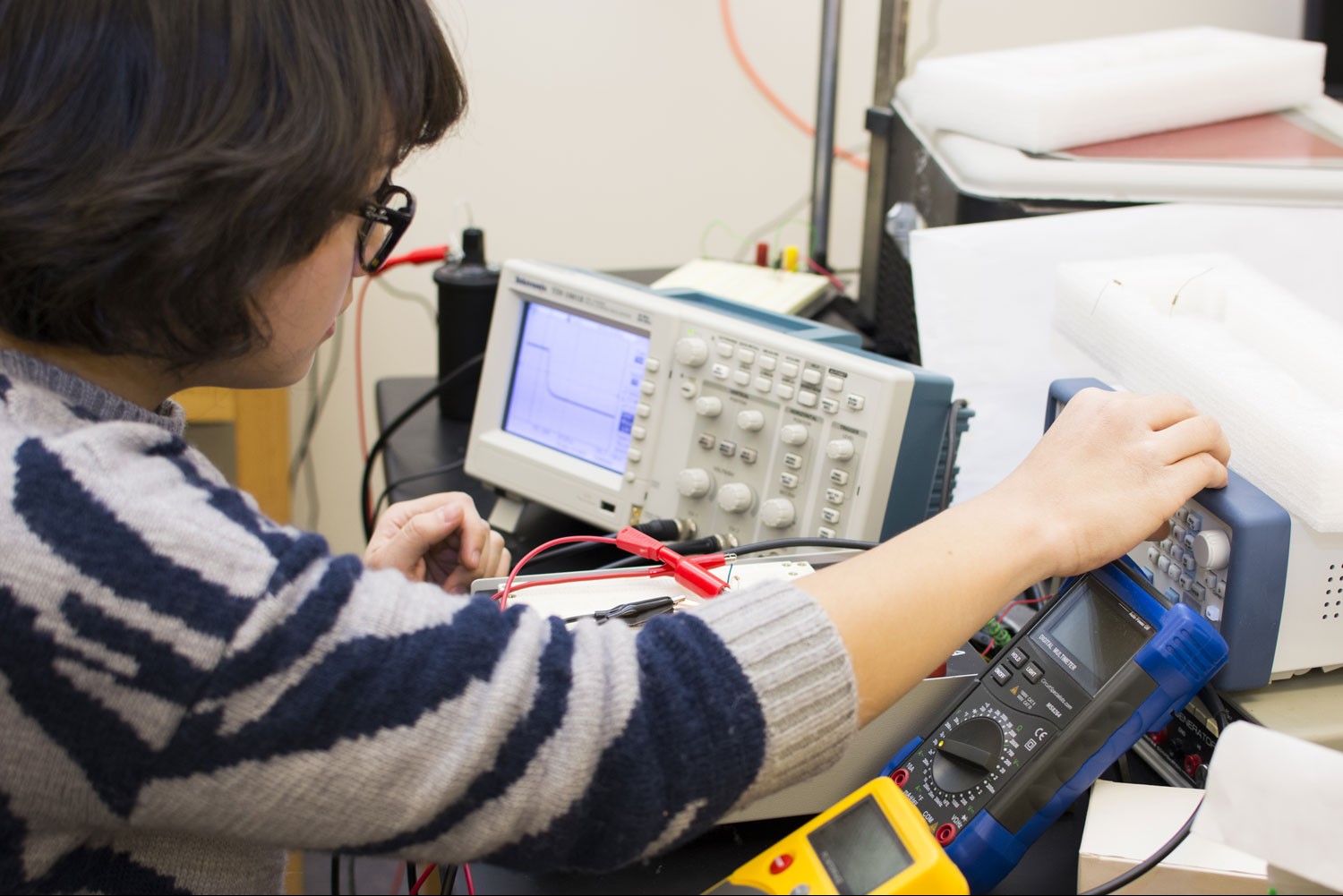 Physics majors dive into senior projects
Physics majors dive into senior projects 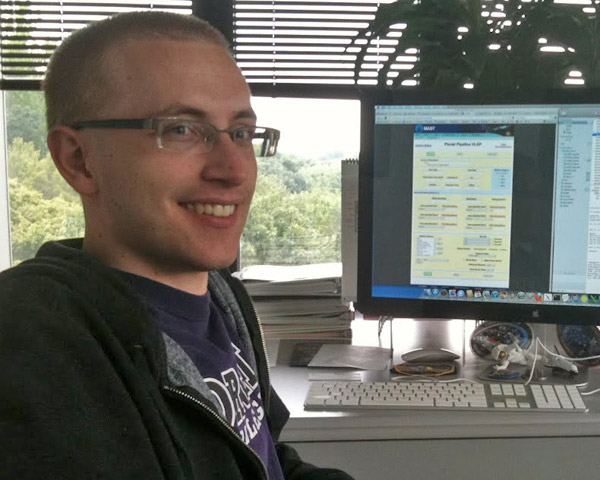 McKenna pursues doctorate in data visualization
McKenna pursues doctorate in data visualization